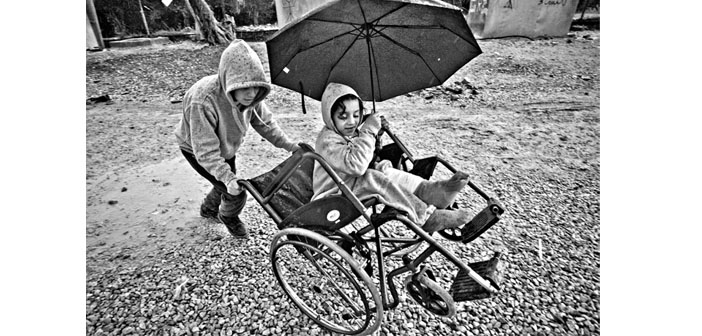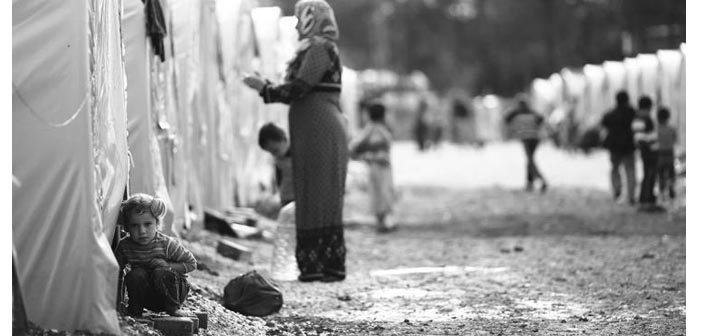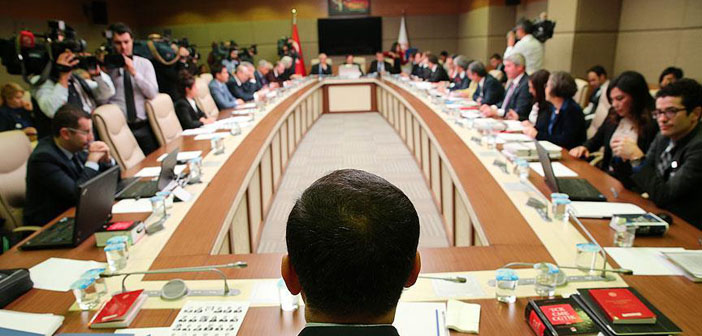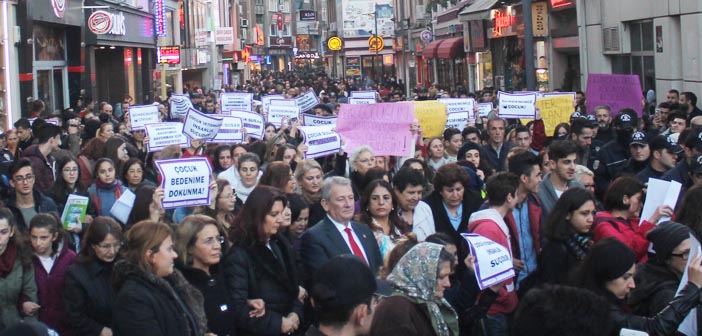Development of Social and Cultural Life Association (SKYGD) conducted a field study in order to examine the life conditions, expectations and problems of Syrian children living in Turkey. 100 children living in various districts of Istanbul had been interviewed and a report titled as “Being a refugee children in Turkey” is issued. The report shows that the most fundamental demand of the children is to go on their education, which they are deprived of because of financial problems.
Majority
of Syrian refugees are children. About 2.5 million children are
having difficulties in accessing basic services like education,
healthcare and sheltering. According to data of Turkish Ministry of
Interior General Directorate of Migration Management, 922.000 Syrian
children live in Turkey. It is estimated that 622.000 of them cannot
receive education.
Conducting studies with children and young people for 2 years, SKYGD released the conclusions of the field study consisting of interviews with 100 Syrian children. Speaking to the children between the ages of 7 and 12, the Association notes that children older than 12 cannot be interviewed because majority of them are working.
The children were asked where they were living in Syria and how they came to Turkey. 95% of the families came to Istanbul from Aleppo, Damascus and Qamishlo. It is also found out that the children came after 2013 weren't accepted to camps. On the other hand, the ones who stayed in a camp don't have very pleasant memories. One of them said: “We came to Karkamış camp and stayed 2 months. It was so bad that we returned to Syria. Then we ran away again and came to Antep.”
Another point emphasized in the report is the fact that the children cannot access basic services like education and healthcare sufficiently. In Turkey, Syrian refugees must be registered in order to receive such services, but 23 children out of 100 say that they don't have any kind of ID. Only 31 children said that they receive healthcare service from official institutions.
Only 38 children go to school and 39 children are illiterate. Girls have more difficulty in going to school. A great majority of children state that they want to go to school. The reasons why they cannot go to school vary from working to financial problems.
The report also assesses children's relations with their environment. According to the report, some children say that there are people helping and treating them nicely in their neighborhood and some others say that both adults and children are treating them badly. 41 children say that they don't have any friends neither in the neighborhood nor in the school. Children say, “I haven't had any friend since 2 years” or “I miss my friends in Aleppo”. Discrimination is an important factor. A child says, “When I get the ball, other children take it away from me and throw it under a car.”
Children were also asked what they think about Turkey. While 71 of them say that they hadn't knew anything about Turkey before coming here, 80 of them say that they wouldn't like to be here, if there wasn't a war in their country. Only 7 children say that they don't want to return to Syria, because they think that there is nothing left to return to. Their expectations from Turkey are better houses, job opportunities, education and healthcare. However, there are also children saying that they don't have any expectation. 36 of them want to become a doctor and 36 of them want to become a teacher.





